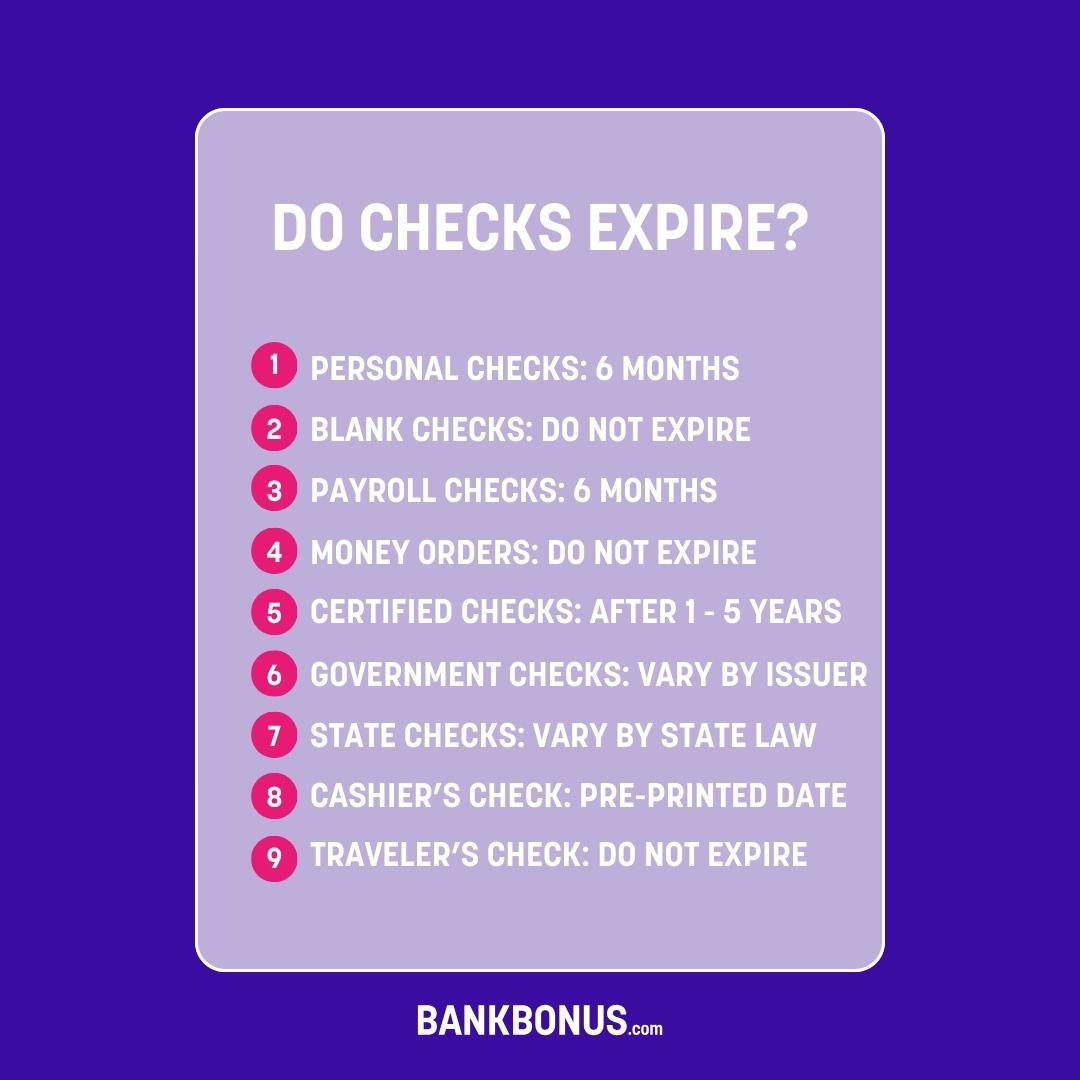If you come across an uncashed check sitting around for several months, you might wonder, “Do checks expire?” The answer to this question depends on the type of check.
Paper checks can be a convenient method for making and receiving payments to and from your checking account, but the current generation doesn’t have as much experience with them since direct deposit took hold.
Keep reading to discover what to do if you encounter an old or outstanding check.
Do Checks Expire?
Reviewing each check for any expiration date, issue date, or other timeframe is important.
When it comes to financial transactions, it’s important to understand the validity of checks. You may wonder how long a check remains valid before it expires.
Checks typically have an expiration date printed on them, indicating the date until which the check can be honored by the financial institution. However, it’s essential to note that the expiration policies can vary depending on the bank and the type of check.
While checks may not necessarily expire like perishable goods, several factors can affect their validity. It’s important to be aware of these factors to ensure a smooth transaction:
- Stale-Dated Checks: According to the Uniform Commercial Code (UCC), even though personal checks do not technically expire, banks may consider them “stale-dated” if they are over six months old. While the bank can still process the check, a financial institution has the right to refuse it or require the issuer to confirm the availability of funds.
- Post-Dated Checks: A post-dated check includes a future date instead of the current date. While writing a post-dated check may be legal, the recipient can only deposit checks on the specific date written on the check. Communicating with the recipient is essential to ensure they know the check’s post-dated status.
- Stop Payments: In some cases, the issuer of a check may place a stop payment order, instructing the bank not to honor the check. Stop payments can be placed for various reasons, such as a lost or stolen check, a dispute with the payee, or a change in payment method. It’s crucial to contact your bank immediately if you wish to stop payment on a check.
Expiration Policy for Different Types of Checks
Expiration dates and policies can vary based on the type of check. Here’s a closer look:

- Personal Checks: Personal checks are typically good for 6 months or 180 days. Rather than a hard and fast expiration, many checks become “stale” after six months. At that point, a bank can decide whether to accept the personal check deposit.
- Blank Checks: Generally, blank checks do not expire. However, if there is any writing on the check, such as a date and a signature, it will expire after six months. If you have a completely blank check, it can last for years without expiring.
- Payroll and Business Checks: Payroll and business checks become stale after six months or 180 days. Some businesses will put a note stating that the check is void after 90 days, but most financial institutions will honor it for up to six months.
- Money Orders: Money orders never expire, but some issuers will add a non-refundable service charge if it’s not cashed within a certain timeframe.
- Certified Checks: When a certified check remains uncashed for an extended period, it may be considered abandoned. This timeframe typically ranges from one to five years, depending on the state. Once a certified check is abandoned, it is returned to the state’s unclaimed property division or a similar agency. The state then holds the funds until the rightful owner claims them.
- Government Checks: The specific expiration date for checks written by government agencies can vary depending on the type of check and its issuer. For example, U.S. Treasury checks, which include federal tax refund checks, are typically valid for one year from the date on the check. However, it’s important to note that state and local government checks may have different expiration periods based on state laws.
- State and Local Government Checks: The expiration dates for these checks can vary depending on the issuing agency’s policies and local laws. Therefore, it is important to familiarize yourself with the specific expiration timeframe to avoid any inconvenience or potential loss of funds. To determine the expiration date of a state or local government check, contacting the relevant issuing authority is recommended.
- Cashier’s Checks: Sometimes, a cashier’s check may have a pre-printed expiration or void date. If this is the case, it’s best to cash the check before that date to avoid any potential complications. To ensure you can use a cashier’s check, review it carefully for any expiration information or timeframe provided by the issuing bank.
- Traveler’s Checks: Traveler’s checks, on the other hand, generally do not have an expiration date if the issuing bank is still in business. Even if you have unused traveler’s checks from several years ago, you can still use them as long as the issuing bank is operational.
What to Do with a Stale Check
If you find yourself in possession of an expired personal check or any other old check, don’t worry. There are steps you can take to resolve the situation.
- The first and most important step is to contact the individual or organization that issued the check to you. Explain the situation politely and request a new check. You can even reach out to the check writer or account holder if you’re still in contact. In most cases, the issuer should be willing to accommodate your request, especially if they understand that it was an oversight on their part. It’s always best to maintain clear communication to resolve the matter promptly.
- Remember to record your communication, such as emails or written agreements, to ensure a smooth resolution.
- In the meantime, keeping the expired personal check in a safe place is crucial. Treat it as you would any valuable document, and keep it if you need proof or reference during the resolution process.
By staying proactive and contacting the issuer, you increase the chances of having the expired personal check reissued, allowing you to receive the payment without any further complications.
Conclusion
Check expiration depends on the type of check and the regulations set forth by governing bodies.
Personal checks typically expire after six months, as the UCC states. However, it is ultimately up to the bank’s discretion whether to consider a personal check expired after this timeframe.
Blank checks, on the other hand, generally do not expire as long as the associated account remains active.
Certified checks usually do not have an expiration date, but they may be subject to state unclaimed property laws.
Government checks, such as tax refunds or benefits, usually carry a one-year expiration date. It is important to note that checks issued by state and local governments may have varying expiration dates.
Other types of checks, such as cashier’s checks and traveler’s checks, may have their own specific expiration guidelines.
Reviewing the check for any expiration date or timeframe specified is always advisable.





Comments are closed.
Comments are closed here.